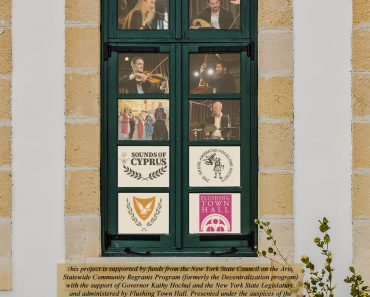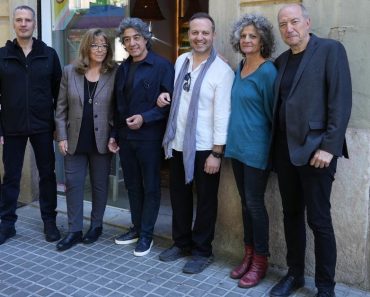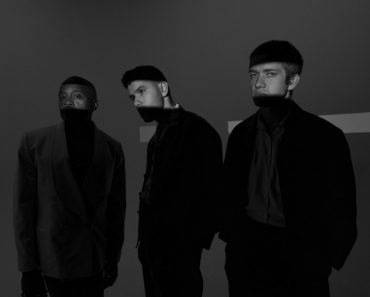At just 16 years old, Klavdia wowed the judges and audience of The Voice of Greece, making it all the way to the finals. Now, at 22, she’s ready to take on her biggest challenge yet: representing Greece at the Eurovision Song Contest 2025with her powerful ballad “Asteromáta”.
Greece’s National Selection: A Historic Open Final
This year, Greece made headlines by organizing an open national final for the first time in 22 years. The Ethnikós Telikósbecame a major musical event in the country, attracting 187 entries from across Greece. After a fierce competition featuring 12 finalists, the decision was split between 50% jury vote (national and international) and 50% public televote. The winner? Klavdia, with her emotive and symbolic song “Asteromáta”.
Klavdia’s Journey: From Talent Shows to Stardom
Klavdia Papadopoulo (Greek: Κλαυδία Παπαδοπούλου) was born in 2002 in Aspropyrgos, a town near Athens. Her roots trace back to the Pontic Greeks, a community deeply affected by historical conflicts along the Black Sea coast—an influence that resonates in her Eurovision entry.
Klavdia’s passion for music shone early. At 15, she auditioned for Greece’s Got Talent. While she didn’t advance, judges encouraged her to keep pursuing her dream. The following year, she joined The Voice of Greece at 16, performing “Roxanne” by The Police in the blind auditions. Three coaches—Kostis Maraveyas, Sakis Rouvas, and Helena Paparizou—turned for her instantly, with Panos Mouzourakis joining later (though blocked). Klavdia chose Helena Paparizou, Eurovision legend and winner, as her mentor.
She sailed through the battle rounds, winning with “One”, then advanced past the knockouts with “Feeling Good”, defeating fellow contestants. In the live shows, Klavdia reached 4th place overall, earning praise from both the public and judges.
Following The Voice, Klavdia signed with Panik Records, one of Greece’s leading labels. Her debut single “Lonely Heart” (2022) racked up over 2 million streams, spawning an acoustic version and a remix with Greek star ARCADE—her future Eurovision co-writer.
In 2023, Klavdia released her biggest hit to date, “Haratama”, achieving 11 million views on YouTube and 7 million Spotify streams, earning double platinum certification and reaching #37 on the charts. Her growing fame led to collaborations with major artists like Dionysis Savvopoulos, a standout performance at the MAD Video Music Awardswith Konstantinos Argyros, and an invitation to perform alongside Giorgos Sampanis.
In 2023, Klavdia attempted to represent Greece at Eurovision but withdrew amid controversy in the selection process. Her intended entry, “Holy Water”, was still released to critical acclaim. She followed up with her debut EP “Klavdia”, featuring fan favorites and two new tracks: “Vasanizomai” and “Magemema”.
Her breakout year culminated in winning Best New Artist at Cyprus’s Super Music Awards 2023.
The Meaning Behind “Asteromáta” – Greece’s Song for Eurovision 2025
At 22, Klavdia steps onto Europe’s biggest music stage with “Asteromáta”, a haunting ballad sung in Greek. Co-written with ARCADE under Panik Records, the song is deeply personal and historically charged.
“Asteromáta” tells the story of those forced to leave their homeland in search of a better future, reflecting a world marked by conflict and displacement. It draws inspiration from the Pontic Greek genocide, evoking the painful history of expulsions, survival, and longing—a universal message wrapped in poetic symbolism.
As Klavdia says: “In war, no one truly wins.”
Lyrics of “Asteromáta” – Read the Original Greek and English Translation
If you’re looking for the lyrics to “Asteromáta”, you’re in the right place. Below you’ll find the song’s original Greek lyrics alongside their English translation, perfect for singing along or understanding the song’s powerful message.
Greek
Asteri mou,
Asteri mou,
Glykia mou mana mi mou klais
Mavra ki an sou foroune
To xethoro to soma mou
Floges den to nikoune
Ta chelidonia tis fotias
Thalasses ki an pernoune
Tou rizomou ta chomata
Pote den lismonoune
Asteromata mou mikri
Gyre na se filiso
Sta agia sou ta dakrya
Ta cheili mou na sviso
Asteromata mou mikri
Gyre mou na se piaso
Ta xechasmena mou ftera
Sterna na xapostaso
Ah Asteri mou
Tzivaeri mou
Glykia mou mana mi mou klais
Karavi ein’ i zoi mou
Pou psachnei gia ton gyrismo
Agera to pani mou
Asteromata mou mikri
Gyre mou na se piaso
Ta xechasmena mou ftera
Sterna na xapostaso
Ah Asteri mou
Tzivaeri mou
Asteri mou…
English
My star,
My star,
My sweet mother, do not weep,
Though they dress you in mourning black.
This faded, weary body of mine,
No flame can ever crack.
The swallows born of fire’s embrace,
No matter how far they roam,
Shall never forget the sacred earth
That once they called their home.
Oh, my little starry-eyed one,
Lean, let me kiss you.
Upon your holy tears of light,
Let my parched lips rest anew.
Oh, my little starry-eyed one,
Lean, let me hold you.
Let these weary, forgotten wings
Find their last breath upon you.
Ah, my star, my precious light…
My sweet mother, do not weep,
My life’s a vessel, drifting free,
Forever searching for its home,
The wind, its sail at sea.
Oh, my little starry-eyed one,
Lean, let me hold you.
Let these weary, forgotten wings
Find their last breath upon you.
Ah, my star, my precious light…
Ah, my star, my precious light…
My star…
Greece at Eurovision: A Storied History
Greece debuted at Eurovision in 1974 with Marinella and the song “Krasi, Thalassa Ke T’agori Mou”, finishing 11th. Since then, Greece has missed six contests: 1975, 1982, 1984, 1986, 1999, and 2000—due to political reasons, religious holidays, or rule changes.
Their crowning achievement came in 2005 with Helena Paparizou’s “My Number One”, securing Greece’s first and only win. Greece has never finished second but earned third place three times: 2001 (Antique), 2004 (Sakis Rouvas), and 2008 (Kalomira).
Greece has qualified for nearly every grand final except 2016 (Argo), 2018 (Yianna Terzi), and 2023 (Victor Vernicos). After a reset in 2024 with Marina Satti’s “Zari” (8th in the televote), hopes are high for Klavdia to return Greece to Eurovision glory.







